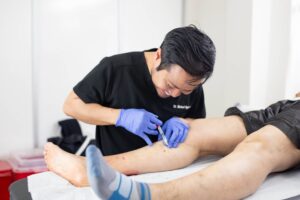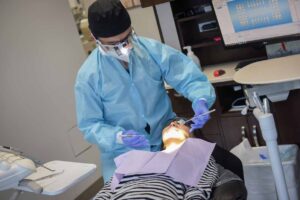What kind of doctor is a vein specialist? Have you ever wondered what kind of doctor specializes in treating varicose veins? Varicose veins are a common medical condition that can affect individuals of all ages and backgrounds. While they may not always pose a serious health risk, they can be unsightly and cause discomfort or pain. Fortunately, there are medical professionals who are specifically trained to diagnose and treat varicose veins. In this article, we will delve into the world of vein specialists, exploring what they do, what qualifications they hold, and what they are commonly called in the medical field.
Understanding Varicose Veins
Before we dive into the role of vein specialists, let’s first understand what varicose veins are. Varicose veins are swollen, twisted veins that often appear blue or dark purple. They typically occur in the legs and can be caused by a variety of factors, including genetics, age, pregnancy, obesity, and prolonged periods of standing or sitting.
Varicose veins are the result of damaged or weakened valves in the veins. Normally, these valves prevent blood from flowing backward, ensuring that it moves toward the heart. When these valves fail to function properly, blood can pool in the veins, causing them to bulge and become varicose.
While varicose veins are often harmless, they can lead to symptoms such as pain, aching, itching, and a feeling of heaviness in the legs. In some cases, complications like skin ulcers or blood clots may arise, making it essential to seek medical attention.
The Role Of Vein Specialists
Vein specialists, also known as phlebologists, are medical professionals who specialize in the diagnosis and treatment of venous disorders, including varicose veins. They play a crucial role in helping individuals manage their vein-related issues and improve their overall quality of life. Here’s a closer look at what vein specialists do:
- Diagnosis: The first step in treating varicose veins is an accurate diagnosis. Vein specialists use various diagnostic techniques, such as ultrasound imaging, to assess the condition of the veins and identify any underlying issues. This helps determine the most appropriate treatment plan.
- Treatment: Vein specialists offer a range of treatment options for varicose veins, depending on the severity and specific needs of the patient. These treatments can include lifestyle modifications, compression stockings, minimally invasive procedures like sclerotherapy or endovenous laser treatment (EVLT), and, in severe cases, surgical intervention.
- Education: Vein specialists also educate their patients about venous health, prevention, and lifestyle changes that can alleviate symptoms and reduce the risk of developing new varicose veins. They play a key role in helping patients understand their condition and treatment options.
- Research: Many vein specialists are involved in ongoing research and clinical trials related to venous disorders. This research helps advance the field and improve treatment outcomes for patients with varicose veins and other venous conditions.
Qualifications Of Vein Specialists
To become a vein specialist, one must undergo extensive medical training and education. The qualifications required to practice as a vein specialist may vary by region, but generally, they include:
- Medical Degree: Vein specialists are typically medical doctors (MDs) or doctors of osteopathic medicine (DOs). They must complete a medical degree program from an accredited medical school.
- Residency: After obtaining their medical degree, aspiring vein specialists often complete a residency in a related field, such as internal medicine or general surgery. This residency provides them with a broad foundation in medicine.
- Fellowship: To specialize in venous disorders, physicians can pursue a fellowship in phlebology. During this fellowship, they receive specialized training in the diagnosis and treatment of venous conditions, including varicose veins.
- Certification: Many vein specialists seek board certification in phlebology to demonstrate their expertise in the field. Board certification is obtained through rigorous examinations and assessments.
What is a varicose vein specialist called? Varicose vein specialists are often referred to as “phlebologists.” The term “phlebology” comes from the Greek word “phlebos,” which means “vein,” and “logos,” which means “study” or “science.” Therefore, phlebology can be translated as the “study of veins.” Phlebologists are experts in diagnosing and treating venous disorders, including varicose veins.
In addition to being called phlebologists, these specialists may also be referred to as “vein doctors” or “vein specialists.” These terms are more colloquial but convey the same meaning.
Conclusion
Varicose vein specialists, or phlebologists, are medical professionals who focus on diagnosing and treating venous disorders, including varicose veins. They undergo extensive training and education to provide expert care to patients with vein-related issues. Whether you’re seeking relief from varicose vein symptoms or interested in preventing them, a vein specialist can guide you through the process and help you achieve healthier, more comfortable legs. Remember, early intervention and treatment can make a significant difference in managing varicose veins and improving your overall quality of life.












